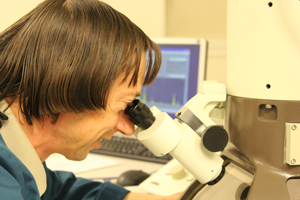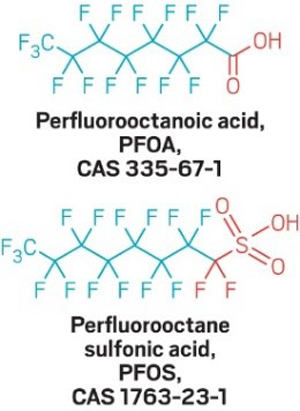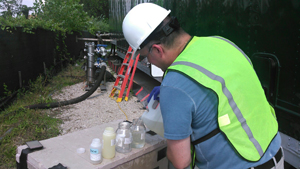When US EPA and other federal and state governmental agencies need the right data from the right place at the right time—the first time—they turn to TechLaw. Our environmental science experts have prepared and reviewed hundreds of EPA-required Sampling and Analysis Plans, Quality Assurance Plans and Quality Assurance Project Plans and performed data quality reviews of more than 1,000 documents associated with more than 250 RCRA, CERCLA and federal facility sites across the country.
We specialize in performing precise scientific validation to assure the quality and usability of field and analytical data. Under our US EPA contracts, TechLaw has conducted data validation on more than 20,000 samples, and produced more than 1,500 data validation packages under virtually all conditions.
And who does EPA turn to for the collection of environmental data used for compliance and enforcement? TechLaw, selected by EPA to develop and present quality assurance and specialized chemistry training for several EPA regions. We have collected samples or split samples from more than 500 different facilities across the US—work that must stand up to the scrutiny of regulatory agencies and in legal proceedings, making accuracy and timeliness critical.
Laboratory Quality Assurance
US Environmental Protection Agency
 TechLaw understands that the appropriate preparation and analysis of environmental samples, and the validation and reporting of the resulting analytical data, are critical to EPA enforcement, investigation and remediation. For two decades, TechLaw has supported the US EPA’s laboratory operations through multiple Environmental Services Assistance Team (ESAT) contracts nationwide.
TechLaw understands that the appropriate preparation and analysis of environmental samples, and the validation and reporting of the resulting analytical data, are critical to EPA enforcement, investigation and remediation. For two decades, TechLaw has supported the US EPA’s laboratory operations through multiple Environmental Services Assistance Team (ESAT) contracts nationwide.
TechLaw’s chemists, biologists, microscopists and other scientific professionals are experts in the preparation and tracking of audit samples, developing and assessing specialized sampling procedures, and reviewing and assessing field and analytical fixed laboratory data. Our expertise has allowed us to help develop new service areas for EPA laboratories, such as a Laboratory Information Management System (LIMS) software program for a field laboratory in EPA Region 5, and Polymerase Chain Reaction (PCR) procedures for rapid/same-day identification and quantification of bacterial water quality indicators in recreational waters in EPA Region 1.
TechLaw, in fact, has more contemporary experience as an EPA ESAT prime contractor than any other company, with contracts in Regions 1, 2, 8 and 10.
Oversight of PFAS Investigation and Drinking Water Treatment Systems at Federal Facilities
U.S. Environmental Protection Agency
 Over the past five years, TechLaw has been providing expertise to U.S. EPA in overseeing the Department of Defense’s (DOD’s) implementation of PFAS characterization and mitigation activities at over 20 large DoD installations with multiple PFAS sources, including: analytical methodologies, data review, validation and reporting, treatment technologies for soil and groundwater, and long-term groundwater monitoring. These sites include Eielson AFB in Alaska, Edwards AFB in California and Wright-Patterson AFB in Ohio. TechLaw evaluates the characteristics of PFAS in source areas, such as fire training areas, landfills, hangar systems, and plating shops, and the nature and extent of PFAS in soil, groundwater, surface water and sediment. Fate and transport analyses are conducted to determine environmental migration pathways and human and ecological receptors of the PFAS. We are also providing oversight and evaluation of sampling and analysis plans (SAPs), quality assurance project plans (QAPPs), site characterization reports, time-critical and non-time critical Comprehensive Environmental Response, Compensation, and Liability Act (CERCLA) actions, and design plans for PFAS investigations and mitigation activities.
Over the past five years, TechLaw has been providing expertise to U.S. EPA in overseeing the Department of Defense’s (DOD’s) implementation of PFAS characterization and mitigation activities at over 20 large DoD installations with multiple PFAS sources, including: analytical methodologies, data review, validation and reporting, treatment technologies for soil and groundwater, and long-term groundwater monitoring. These sites include Eielson AFB in Alaska, Edwards AFB in California and Wright-Patterson AFB in Ohio. TechLaw evaluates the characteristics of PFAS in source areas, such as fire training areas, landfills, hangar systems, and plating shops, and the nature and extent of PFAS in soil, groundwater, surface water and sediment. Fate and transport analyses are conducted to determine environmental migration pathways and human and ecological receptors of the PFAS. We are also providing oversight and evaluation of sampling and analysis plans (SAPs), quality assurance project plans (QAPPs), site characterization reports, time-critical and non-time critical Comprehensive Environmental Response, Compensation, and Liability Act (CERCLA) actions, and design plans for PFAS investigations and mitigation activities.
As part of the work described above, TechLaw reviewed a comprehensive QAPP that included detailed sampling and analytical procedures for characterizing PFAS releases to environmental media at approximately 16 active and inactive Federal Facilities. TechLaw focused on ensuring that sample collection, laboratory analyses, and field and laboratory quality assurance/quality control procedures were proposed in accordance with Department of Defense and U.S. EPA guidance and policies for PFAS site characterization.
Our technical expertise extends to several sites in Illinois where PFAS characterization has been initiated, including the Savanna Army Depot, and where there are plans in place to investigate PFAS, such as the Crab Orchard Wildlife Refuge near Marion, Ill. TechLaw also provides expert consulting services at Air Force sites where groundwater treatment systems have been installed on municipal and residential wells with PFAS concentrations exceeding the U.S. EPA Health Advisory Level (HAL). We review groundwater treatment system designs, installation plans, and performance monitoring plans to ensure that communities are not exposed to PFAS above existing regulatory criteria.
Great Lakes National Program Office (GLNPO)
Sheboygan River/Harbor Superfund Restoration, Sheboygan, WI
 TechLaw performed sediment sampling and Construction Quality Control (CQC) inspections to support the US EPA-GLNPO Great Lakes Legacy Act (GLLA) sediment remediation project for the Lower River and Inner Harbor of the Sheboygan River Area of Concern (AOC), Sheboygan, WI. A former manufacturing plant in Sheboygan Falls, on the upper river, was considered the primary source of toxic polychlorinated biphenyls (PCB) contamination in river sediment. PCBs and heavy metals including arsenic, chromium, copper, lead and zinc were detected in fish, wildlife, surface water, sediments in the harbor and river, and in floodplain soils. The Sheboygan River drains into Lake Michigan, the source of drinking water for approximately 58,000 people within the Sheboygan/Sheboygan Falls/Kohler metropolitan area.
TechLaw performed sediment sampling and Construction Quality Control (CQC) inspections to support the US EPA-GLNPO Great Lakes Legacy Act (GLLA) sediment remediation project for the Lower River and Inner Harbor of the Sheboygan River Area of Concern (AOC), Sheboygan, WI. A former manufacturing plant in Sheboygan Falls, on the upper river, was considered the primary source of toxic polychlorinated biphenyls (PCB) contamination in river sediment. PCBs and heavy metals including arsenic, chromium, copper, lead and zinc were detected in fish, wildlife, surface water, sediments in the harbor and river, and in floodplain soils. The Sheboygan River drains into Lake Michigan, the source of drinking water for approximately 58,000 people within the Sheboygan/Sheboygan Falls/Kohler metropolitan area.
TechLaw was responsible for collection and processing of more than 200 post-dredge sediment confirmation samples, remaining on-site for the duration of the project performing CQC activities, including: sampling wastewater treatment plant (WWTP) effluent, providing NPDES discharge monitoring reports and collecting and reporting particulate air quality measurements results from continuous air monitoring stations. Previous work at the site included preparation of a site-specific QA Project Plan/Sampling and Analysis Plan (QAPP/SAP) for the project and pre-construction soil sampling to document site conditions prior to dredging at the site, which indicated elevated levels of PCBs and PAHs.
